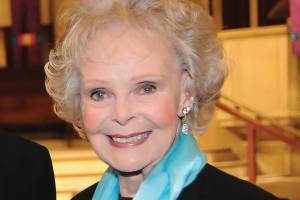An Uncommon Montana Woman
Ella Knowles is known for being active in the Montana women’s right-to-vote movement. She was not only a suffragist but also a trailblazer enabling other women to become lawyers. We could seek to understand her from a distance of over a hundred years but instead let’s follow her as she makes her way in what was sometimes a strained and oftentimes a ridiculing environment.
Do you see her as a precocious and only child? Ella graduated from Northwood Seminary in her hometown of Northwood, New Hampshire, at age fifteen. In 1876 she became a teacher after completing a course at the Plymouth State Normal School. She taught school for the next four years to save for expenditures while attending college. She studied Greek among other topics while teaching and was more than ready to enter Bates College in Lewiston, Maine. Bringing attention to herself, she was the first woman to take part in debate and to hold an editorial position on the college magazine.
What she had in mind was to become a lawyer. Graduating from Bates in 1884, she moved to Manchester, New Hampshire, and read law in Henry E. Burham’s office. It was then that her health became fragile, and her physician recommended she move west.
She arrived in Helena, Montana, in 1888. She had a successful teaching year at Helena’s Central School and was sought out to be a principal. Instead, she decided to continue her legal studies in the office of Joseph W. Kinsley.
As we follow her, we perceive that her appearance and personality is not what we would expect. She was small in stature and liked to wear pretty clothes. She made friends easily and attended community activities. She was a member of many organizations in Helena where she connected with people, including men who could help her become a lawyer.
She needed an income while she was studying for the bar exam, so she became a bill collector. Watch Ella, as she walked up and down the Helena streets, asking if businessmen needed bills collected. The proprietor at one store was so exasperated with her repeated visits that he told her that he had lent umbrellas to three different women, and they failed to return them. He wanted them returned. Ella collected two umbrellas and returned them to the store. The proprietor was first upset because asking for the umbrellas might offend steady customers. Ella reminded him that he had told her to collect the umbrellas. At first he wouldn’t pay her fee of fifty cents. She held a kangaroo court right there in the store with the customers participating. They agreed that she had done the work, and she should be paid. The proprietor finally laughed and gave her the fifty cents. Later he gave her all of his bill collecting work. She kept her “first fee” as a keepsake the rest of her life.
Ella had to overcome two gigantic hurdles to become a lawyer: the Statutes in Montana Territory prohibited women’s entry into the legal profession, and she had to pass the bar exam. After doing personal interviews with legislators and enduring joking comments, she saw success through a bill introduced in the 1889 legislature by Walter M. Bickford and stating that those passing the bar “regardless of sex” were entitled to practice law. The bar examination was conducted in December of that year by three well-known Montana lawyers. Later one of the three, Cornelius Hedges, wrote in his diary, “Examined Miss Knowles for admission to the Bar and was surprised to find her so well read. She beat all that I have ever examined.” Celebrate with Ella. She overcame both hurdles.
One of the first cases she took on was representing a Chinese man who had been bilked out of $5 back pay from the owner of a restaurant. The owner brought his payroll book to court to prove his point. Ella thought she had lost the case when she asked to see the book. With a magnifying glass, she discovered erased figures and others marked over them. The erased figures corresponded with the Chinese man’s account. He was able to collect the $5. Don’t you feel a bit of glee as you watch Ella leave the courtroom that day?
Two years later, Ella was cast into the limelight when the Populist Party chose her to run for Attorney General even though she couldn’t vote herself and the entire voting constituency was men. Knowles wasn’t successful, but she had more votes than any other Populist candidate. It’s possible that she didn’t expect to win, but she did expect to get her name and skills recognized so that she would have additional work. She so impressed the successful incumbent, Henri Haskell, that he hired her as the first woman Assistant Attorney General.
While Ella was working in that position, the woman suffragists were gearing up for opening of the legislature. Ella became president of the Montana Equal Suffrage Association. Using her outstanding oratorical skills, she addressed the legislature. She attempted but failed to convince an all-male legislature that women having the right to vote was simple justice. It wasn’t until 1914 that women suffragists finally succeeded, but with Ella leading the way in 1897, they were a step closer.
Until Haskell left office, Ella was the first woman to try cases for the State of Montana in the Montana Supreme Court and with the U.S. Department of Interior. During this period, she married her boss, Henri Haskell. When his term of office was completed, he wanted to return to his ranch near Glendive. They both moved to Glendive, but soon divorced in 1902, and Ella moved first to Helena and then to Butte to hang out her shingle.
During the ensuing years Ella was recognized as an authority on mining law. She was extraordinarily successful in representing her clients and in managing the mining property she owned. Her fragile health worsened during those busy years. She tried taking off a year to tour the world, but her health worsened. On January 27, 1911, she died at age fifty.
Ella was in the right place at the right time to be first in several areas, but she would have failed to lead the way if she hadn’t been the intelligent, pretty, hard-working, and precise person that she was. In achieving her personal goals, she also carved a path for women to come after her. MSN








